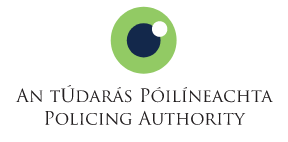Policing and procedural justice – a dialogue between the Policing Authority and criminologists

Irish Legal News presents the first in a new series of articles facilitating dialogue between criminal justice policymakers/practitioners and academic researchers.
In today’s piece, the Policing Authority poses questions about procedural justice (PJ) to researchers at Maynooth University and University College Dublin.
Questions for researchers from the Policing Authority
In its engagement with communities and groups, the Policing Authority has heard that ‘how’ policing is done is crucial in terms of the perception of the Garda Síochána in the community (see, for example, our What We Heard Reports from 2022 and 2023. Additionally, following a request by the Minister for Justice, the Authority provided 16 regular reports on oversight of Covid-19 policing, which reference diverse experiences of policing during the period).
The objection from communities and individuals — who quite often may have lost confidence in the police — is very often not that enforcement occurs, but concerns how it is conducted and experienced. This seems to us to align with the wider literature on procedural justice in policing.
Examples of perceived unfairness or injustice that we hear about (particularly from young people) include unnecessary roughness, name calling and, generally, a lack of the respect which all should receive, irrespective of the offence they have allegedly or actually perpetrated. For victims, it can include a perception that their crime has not been appropriately investigated because they were not believed, or because of their background or membership of a particular community.
Separately, but relatedly, gardaí have, in conversations with our staff, spoken of their own sense of a lack of procedural justice within their organisation in terms of recruitment, promotion and especially conduct and disciplinary processes.
Procedural justice (PJ) appears to be a live issue. Police Scotland’s newly appointed Chief Constable stated at a conference that her key priority in Year 1 is to tackle the issue of PJ within Police Scotland as she believes it affects not only their workforce but also how that workforce interacts with the public and carries out its duties.
The Authority is aware that there is much research examining the link between PJ and perceptions of police and police legitimacy in the community. There is also research linking officers’ experiences of PJ in their organisation to their propensity to use force.
The Authority is interested in understanding more about what is known about PJ within policing organisations. Our engagement with communities and individuals and what we read in the literature suggests that the quality of interactions between the Garda Síochána and the communities they serve may be the most important factor on which trust and confidence in the police rests. Without such confidence, communities cannot feel safe and well served.
Examples of the types of questions we might ask researchers include:
- Is there high quality research on how police forces can improve their performance in this space on which the Garda Síochána could act?
- How much evidence is there of a link between officers’ experiences of procedural justice and how they act?
- Can procedural justice be measured or tracked for oversight purposes?
- What research is missing that might help practitioners in this space?
Margaret Tumelty (Director, Policing, Strategy and Performance) and Sophia Carey (Senior Manager, Research)
Researchers’ response
The central claim of PJ theories is that people are more likely to obey the law if they feel that their treatment is fair, inclusive and respectful. Research in the United States (Tyler and Huo, 2002; Tyler, 2007, 2011) and beyond (e.g. Murphy, 2004, 2005; Hinds and Murphy, 2007) provides strong empirical support for this model (Hough et al., 2013).
As regards suspects or those subjected to police powers, recent experimental studies have sought to test PJ theories, including the world’s first randomised field trial of PJ in policing (in Random Breath Testing (RBT) operations) in Queensland, Australia. While results in terms of trust and confidence were very positive, it is worth noting that RBTs are a very benign encounter and are not generalisable to police-citizen encounters which involve greater conflict or higher stakes (being arrested, reporting a crime, etc.). Notably, the intervention showed no positive effects when replicated in Scotland. This may be explained by the significant issues in implementation (MacQueen and Bradford, 2017) (e.g. issues with ‘treatment fidelity’ and the negative attitudes and behaviours of study officers). It seems that PJ works best where there is organisational buy-in and management support of its principles (see also, Hamilton and Black, 2019).
Many studies have focused on PJ and victims’ interactions with police (see Healy, 2019, for an overview of high-quality international literature). This research suggests that police have the power to influence victim satisfaction, recovery after crime and, to a lesser extent, willingness to engage with the system. Procedurally just processes have been shown to be at least as important to victims as favourable case outcomes. The literature highlights examples of police practices that enhance victims’ perceptions of PJ. Victims tend to report a stronger sense of PJ when they feel respected and validated, and believe that their cases are being taken seriously. Perceptions of PJ are also higher when victims feel included in the process and well-informed about the progress of their cases, and regard the officers dealing with their cases as trustworthy and competent. Displays of sympathy and access to support can contribute to a sense of PJ. The literature is clear that victims’ encounters with criminal justice are enhanced when policework aligns with PJ principles. While we see improvements in police practices in some countries, victims — particularly in marginalised communities — still report dissatisfaction with the criminal justice process (Dearing and Huxtable, 2021).
Practically, PJ can focus on systems or structures (e.g. whether the built environment in police stations fosters inclusion), or on professional cultures (e.g. enhanced training in interpersonal communication and PJ principles using ‘scripts’) (Wilson, 2012; MacQueen and Bradford, 2017).
Measuring PJ practices by police for the purpose of oversight is possible. However, depending on the methodology used, the value and cost of the insights derived from monitoring vary significantly. Some monitoring methodologies involve reviewing internal operational policies regulating public treatment. These policy reviews can be complemented by surveys and/or interviews with police officers. This was the approach to PJ assessment used in England and Wales by HMICFRS in its PEEL Legitimacy Reports (2015–2017) which sought to evaluate police legitimacy, in part through a PJ lens. Yet, this approach cannot accurately assess if policies are operationalised effectively, if at all. The value of monitoring in this way is therefore quite limited, and can encourage shallow, ‘box ticking’ accountability approaches.
Meaningfully assessing the operationalisation of PJ practices in policing requires careful surveying of people who have direct contact with police, beyond superficial interactions (e.g. chatting with police on the street) – for example, where police use coercive and intrusive powers, such as stop and search in public spaces (Skogan, 2006). Stop and search is a form of police-community contact which tends to reduce trust and confidence in policing (Carr et al., 2007; Parmar, 2011). PJ practices can manage some of this decline, albeit without wholly addressing it (Bradford et al., 2009; Bradford, 2015).
An Garda Síochána (AGS) is a outlier among comparable forces in terms of the lack of information AGS collects and makes routinely available. The absence of publicly available data across many fields, such as stop and search, is a major obstacle to police practitioners using evidence-based practices.
Existing population-wide sample surveys of public attitudes to AGS provide few, if any, insights on the functioning, effectiveness or conduct of policing. As most people in Ireland have few or no interactions with the police beyond superficial encounters, surveying their attitudes only provides low value data. By contrast, surveying groups and communities that experience significant police contact (i.e. victims, those most likely to be subject to coercive and intrusive police powers), can provide far better insights into police practices and whether the police are experienced as procedurally just.
The concept of ‘organisational justice’ is commonly used to explore the consequences of perceived procedural (in)justice within police organisations (Roberts and Herrington, 2013). There have been a few single-country empirical studies in recent years, finding that feelings of organisational injustice can reduce morale and affect relationships between frontline and senior officers (Martin et al., 2022), but higher levels may reduce attitudinal support for misconduct (Fridell et al., 2021) and are associated with higher stated support for compliance with supervisors, policy and regulations (Haas et al., 2015). Aston et al. (2021) outline a practical model of how organisational justice can contribute to cultural change in policing, based on their work with Police Scotland to reform stop and search.
It is important to note that procedural justice is not a panacea. To a significant degree, the relationship between the police and marginalised (particularly working class and minority ethnic) communities is poor because of their long-term experiences of over-policing and under-protection. Disproportionate use of stop and search and other police powers in these communities must be addressed directly. Yet, experiments and practical models of ‘doing’ procedural justice from elsewhere can be replicated here or used to ground ongoing discussions here in Ireland regarding, for example, how gardaí feel they are treated by their organisation and how citizens, including victims, suspects and people subjected to police powers, feel they are treated by gardaí.
Professor Claire Hamilton (Professor of Criminology, Maynooth University), Dr Deirdre Healy (Associate Professor in Criminology, University College Dublin), Dr Ian D. Marder (Assistant Professor in Criminology, Maynooth University) and Dr Cian Ó Concubhair (Assistant Professor in Criminal Justice, Maynooth University)










